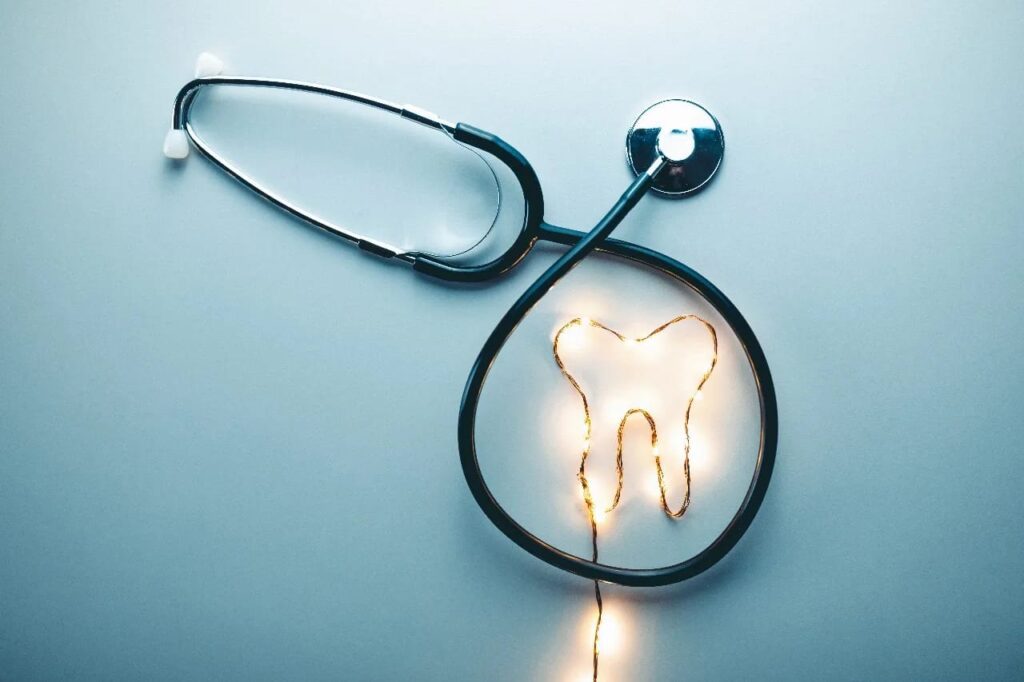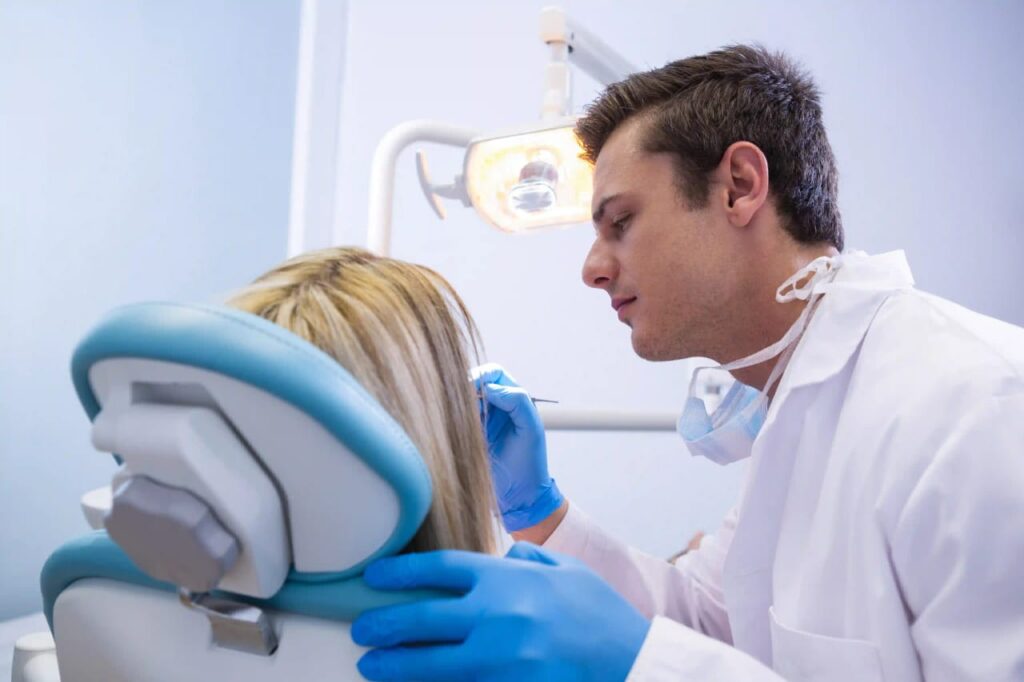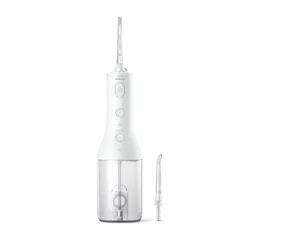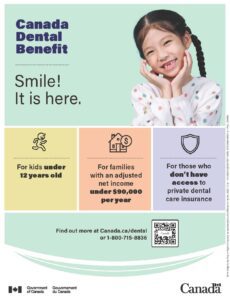A dentist specializes in oral health, providing treatment and care for teeth and gums. These professionals perform dental procedures, offer advice, and diagnose issues.
Dentists in Scarborough play a crucial role in maintaining overall health, as oral conditions often reflect the state of the body as a whole. Regular visits to a dentist can prevent dental problems before they become serious, ensuring that teeth and gums remain healthy.
They are adept at addressing tooth decay, gum diseases, and misalignment, among other oral health concerns. With advancements in dental technology, dentists can offer a range of cosmetics and treatments to enhance appearance and function. Trusting your oral care to a certified dentist is essential for sustaining good dental hygiene and a confident smile. It’s also important to choose a dentist who stays updated with the latest dental practices and technologies, providing the best care possible.
The Role Of A Dentist in Scarborough
Ever wonder what a dentist does? Dentists are essential to our health. They keep our teeth and gums healthy. Now, let’s explore their role, education, and what they do daily.
Education And Training
Becoming a dentist requires hard work. First, they complete a college degree. Next, they attend dental school. This usually takes four years. They learn about teeth, gums, and jaws. Some go further, specializing in areas like orthodontics.
- Undergraduate degree: A must before dental school.
- Dental Admission Test (DAT): They must pass this test.
- Dental school: Four years of intense study.
- Licensing: Dentists need a license to practice.
- Continued education: They keep learning new things.
Duties And Responsibilities
Dentists have many important jobs. They diagnose oral diseases. They create treatment plans. They promote oral health. They interpret X-rays and diagnostic tests. They monitor the growth and development of teeth and jaws. They perform surgical procedures on teeth, bones, and soft tissues.
| Area | Tasks |
| Preventive Care | Cleanings, exams, sealants |
| Restorative Care | Fillings, crowns, bridges |
| Orthodontics | Braces, Invisalign |
| Surgery | Extractions, implants |
| Pain Management | Treat discomfort, infections |
They also advise on diet, brushing, flossing, and using fluoride. They make models and measurements for dental appliances. Dentists make sure patients feel safe and comfortable.
Types Of Dentists
Finding the right dentist is key to great oral health. Different types serve unique needs. Below are some specialists.
General Dentist
General dentists are the primary providers of dental care. They handle regular check-ups, cleanings, X-rays, and basic dental work. If you need a cavity filled or a chipped tooth fixed, a general dentist is your go-to professional.
Orthodontist
Orthodontists specialize in teeth alignment. They use braces, retainers, and other devices to correct misaligned teeth. If your teeth are crooked or your bite is off, an orthodontist will have the right tools and skills to help.
Endodontist
Endodontists have special training in treating tooth pain and diseases related to the tooth’s inner pulp. If you need a root canal, this is the specialist for you. They’re experts in saving damaged teeth.
Periodontist
Periodontists treat gum-related diseases. They focus on inflammatory conditions that destroy the gums and other structures that support teeth. If you have severe gum disease, a periodontist provides the advanced care you need.
Oral And Maxillofacial Surgeon
Oral and Maxillofacial Surgeons are the experts in face, mouth, and jaw surgery. They extract teeth, place implants, and perform advanced reconstructive surgeries.
Pediatric Dentist
Pediatric dentists cater to children’s dental needs. They create a friendly environment for kids. If your child needs dental care, these specialists ensure their experience is pleasant and effective.
Note for developers: Ensure all the H3 tags within the content are rendered according to HTML syntax when implementing on WordPress.
Common Dental Procedures
Dentists help keep our teeth healthy. Many treatments fix different tooth problems. Let’s dive into some common dental procedures. Each one uniquely helps you. Keeping your smile bright is important.
Teeth Cleaning And Exam
Regular check-ups matter for healthy teeth. Dentists clean away plaque and tartar. They look for any tooth issues. Early problem detection saves you from discomfort. Twice a year is the standard recommendation.
- Removal of plaque and tartar
- Checking for cavities and gum disease
- Polishing your teeth
- Providing tips for at-home care
Tooth Extraction
Tooth removal can prevent more issues. Sometimes a tooth cannot be saved. Extraction might be the best choice. Dentists aim to make this process as painless as possible.
- Removing damaged or decayed teeth
- Extracting wisdom teeth for better alignment
Fillings And Restorations
Fillings fix cavities. They restore the tooth’s shape and function. Many materials can be used. Dentists remove decay first. After, they fill the tooth.
Root Canal
Root canals save infected teeth. They remove the damaged nerve and pulp. The area is then cleaned and sealed. This procedure relieves pain and saves the tooth.
Dental Implants
Dental implants replace missing teeth. They serve as tooth root substitutes. Implants provide a strong base for fixed or removable teeth. They match your natural teeth.
Orthodontic Treatment
Braces straighten your teeth. Orthodontic treatment improves your bite. Different types are available. Options range from traditional metal to clear aligners.
Maintaining Oral Health
Oral health is key to a vibrant smile and overall well-being. The mouth is the gateway to the body, making oral care essential. Maintaining oral health involves several daily practices and lifestyle choices. Follow these steps for a healthier smile.
Brushing And Flossing
Daily brushing and flossing ward off cavities and gum disease.
- Brush twice a day using a fluoride toothpaste.
- Spending two minutes each session ensures thorough cleaning.
- Floss daily to remove plaque and food between teeth.
- Change your toothbrush every three to four months.
Regular Dental Check-ups
Visiting a dentist biannually prevents severe dental issues. Regular check-ups spot problems early when they’re easier to treat.
- Dentists clean hard-to-reach areas.
- They check for tooth decay and gum disease.
- Professional advice on custom care keeps teeth healthy.
Healthy Diet
Eating nutritious foods supports strong teeth and gums. A balanced diet provides the minerals and vitamins teeth need.
| Food Type | Benefits |
| Fruits and vegetables | Increases saliva to wash food particles away. |
| Dairy products | Supplies calcium for tooth strength. |
Avoiding Tobacco And Alcohol
Ditching tobacco and moderating alcohol intake protect against oral cancer. They also prevent tooth staining and gum disease.
- Smoking cessation benefits overall health.
- Limit alcohol to avoid unnecessary sugar.
Dental Issues And Prevention
Keeping your teeth healthy involves more than just brushing and flossing. Knowing about common dental issues and their prevention is key to a bright, healthy smile. Let’s dive into some of these challenges and learn how to keep those pearly whites safe.
Tooth Decay
Tooth decay is the destruction of tooth enamel. It happens when sugars in food turn into acid, which can damage teeth. Teeth with cavities need attention from a dentist.
- Sugary foods and drinks lead to decay.
- Regular cleaning stops cavities.
- Dentist visits find decay early.
Gum Disease
Gum disease, or periodontitis, affects the gums and bones. It starts as gingivitis, which is easy to ignore. Look for red, swollen gums and bleeding when you brush.
| Signs | Actions |
| Red Gums | See Dentist |
| Bleeding | Brush Gently |
Bad Breath
Bad breath can be embarrassing. It often comes from leftover food particles or bacteria. Daily brushing and flossing keep your breath fresh.
- Brush twice a day.
- Floss to remove hidden food.
- Visit your dentist regularly.
Oral Cancer
Oral cancer can affect any part of the mouth. Early detection is crucial for treatment. Look for sores or patches that don’t heal and talk to your dentist.
- Regular check-ups spot changes early.
- Avoid tobacco to reduce risk.
- Limit alcohol consumption.
Tips For Prevention
Prevent dental issues with these simple strategies:
- Brush your teeth twice a day with fluoride toothpaste.
- Floss daily to remove plaque.
- Eat healthy foods, and limit sugary snacks.
- Drink water with fluoride for strong teeth.
- See your dentist for regular check-ups.
Children’s Dental Health
Your child’s smile lights up your day. Dental health plays a crucial role in keeping that smile bright. Start early with good habits for strong teeth. Children’s dental health lays the foundation for a lifetime of healthy smiles. Let’s dive into some ways to nurture those tiny teeth.
Oral Hygiene For Kids
Teaching kids about oral hygiene is key to preventing tooth decay. Use a soft-bristled brush for gentle cleaning. A pea-sized amount of fluoride toothpaste offers added protection. Brushing should last two minutes, covering all tooth surfaces.
- Brush twice daily—once in the morning and before bedtime.
- Supervise kids under eight while they brush.
- Replace toothbrushes every three to four months.
Baby Teeth Care
Baby teeth need attention even before they emerge. Wipe your infant’s gums with a soft, damp cloth after feeding. When teeth appear, switch to a small, soft-bristled brush. Avoid putting babies to bed with a bottle as this can cause tooth decay.
| Age | Dental Milestone |
| 6-10 months | First baby teeth appear |
| 3 years | Most baby teeth have emerged |
| 6-7 years | Permanent teeth begin to replace baby teeth |
Diet And Nutrition Tips
A balanced diet is critical for healthy teeth. Reduce sugary snacks and drinks. Opt for water over juice. Snack on fruits, vegetables, and cheese instead of candy or cookies. These foods help fight bacteria and keep teeth strong.
- Choose water or milk over sugary drinks.
- Offer healthy snacks like apples or carrots.
- Read food labels to check for hidden sugars.
Teaching Proper Brushing
Make brushing fun and effective. Use a timer or a song to encourage two minutes of brushing. Teach children to use circular motions. Remind them not to forget the back teeth. A reward chart can motivate regular brushing.
Follow these steps for a healthy brushing routine:
- Wet the brush and apply toothpaste.
- Brush in circles, covering all teeth.
- Spit out toothpaste; don’t rinse—fluoride works best this way.
- Celebrate after brushing with a high five or sticker.
Cosmetic Dentistry
Cosmetic dentistry is about more than a bright smile. It boosts confidence and improves oral health. These services range from teeth whitening to full smile makeovers. Explore how these treatments can transform your smile.
Teeth Whitening
Time, food, and habits can dull teeth. Teeth whitening brings back the shine. Professional options outperform kits at home. Get a brighter smile with expert care.
Veneers And Bonding
Veneers are thin, durable layers for your teeth. They fix shapes, colors, and gaps. Bonding shapes teeth with a resin. It’s painless and quick. Both veneers and bonding enhance smiles.
Dental Crowns
Dental crowns protect and restore teeth. They cover damage and decay. Crowns match natural teeth. They return strength and appearance to your smile.
Smile Makeover
A smile makeover is a custom plan. It combines procedures for the perfect smile. Dentists consider face shape, skin tone, and teeth. The result is a smile tailored just for you.
Dentures And Bridges
Missing teeth affect more than looks. Dentures and bridges replace them. Dentures fit gums well. Bridges use neighboring teeth. Both provide a full, healthy smile.
Choosing A Dentist
Selecting a dentist is an important decision for your oral health and overall well-being. It is not just about finding someone who can clean your teeth. You need a professional you can trust and feel comfortable with. Below are key factors to consider in this decision.
Referrals And Recommendations
Trustworthy referrals are invaluable. Start by asking friends and family. They can share their experiences. Look for reviews online too. Patient feedback reflects the care quality. Always cross-check with multiple sources to ensure you have accurate information.
Location And Convenience
- Choose a dentist near home or work.
- Check office hours for scheduling ease.
- Accessibility is crucial for regular visits.
Cost And Insurance Coverage
Understanding costs and coverage is essential. Make a table of potential costs for comparison.
Add more rows as needed
| Dental Service | Estimated Cost | Insurance Coverage |
| Regular Check-up | $50 – $200 | 80%-100% |
| Filling | $100 – $300 | 50%-80% |
Contact your insurance provider. Confirm what they cover. Ensure the dentist accepts your plan. Always inquire about payment options for services outside your coverage.
Comfort And Trust
Feeling at ease with your dentist matters. Visit the office. Observe the environment. Friendly staff and a clean space are good signs. Share your concerns with the dentist. A good dentist will listen and explain things clearly. You should feel respected and understood.
The code above is designed for easy reading by a child, as per instruction, while dispensing valuable SEO-friendly information on how to choose a dentist, aligned with user search intent.
Frequently Asked Questions Of Dentist
What Services Do Dentists Offer?
Dentists provide a range of services including teeth cleanings, fillings, crowns, bridges, and root canals, and also offer cosmetic treatments such as whitening.
How Often Should I Visit A Dentist?
Ideally, you should schedule dental check-ups and cleanings every six months to maintain oral health and catch potential issues early.
Can A Dentist Treat Gum Disease?
Yes, dentists can treat various stages of gum disease, from gingivitis to advanced periodontitis, often involving deep cleaning or surgical procedures.
What Is The Cost Of A Dental Check-up?
The cost of a dental check-up varies depending on location, clinic, and required treatments, with preventive care often costing less than restorative services.
How Do I Choose The Right Dentist?
Research dentists’ qualifications, read patient reviews, consider office locations and hours, and ensure they provide dental services that meet your needs.
Conclusion
Wrapping up, a dentist is pivotal for maintaining optimal oral health. Regular check-ups can prevent complex issues and ensure a radiant smile. Don’t wait for discomfort to seek attention; prioritize your dental hygiene today. Trust a professional to guide your journey to a healthier mouth and a happier you.
Also Read,
6 Tips From Your Emergency Dentist In Scarborough, ON
Cost of Teeth Whitening in Scarborough
Enhance Your Smile with Top Cosmetic Dentistry Services
Common Misconceptions and Myths About Dental X-Rays
Teeth Sensitivity Causes And Treatment







